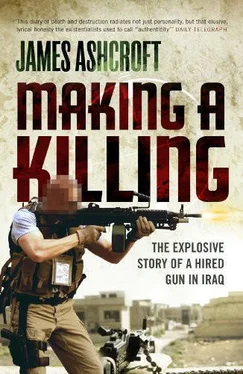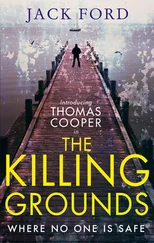During this time, dozens of people died after kidnaps, beatings and torture including Dublin-born Margaret Hassan, married to an Iraqi and an aid worker living in Iraq for thirty years. Her body has never been found. But the murder of Margaret Hassan and many other innocent people was overshadowed in the world news by the torture of Iraqis in the infamous Abu Ghraib prison by Americans. When our Iraqis saw the photos they agreed this was terrible behaviour, but said by no means was it torture. They had lived under Saddam and all had stories of real cruelty involving eye-gouging, gang-rape and power tools.
Moyed, Colonel Faisal’s driver, took off his shirt to show us holes in his armpits where he had been hung on meat hooks and beaten for disobeying orders in the army. When the news came out that the prisoners were being released from Abu Ghraib, the local village elders were horrified. ‘These are bad people! Just kill them instead,’ was the typical suggestion.
When I guided 1st Cav units around Baghdad, in one of the contacts the soldiers had refused to fire because they didn’t have clear targets, and again in another because the fire was coming from a mosque and they preferred to sit it out and trust their home-made armour. That was never reported, but I suppose ‘American Soldier Doesn’t Shoot Mosque’ doesn’t make a good headline. Nor did I see much publicity about the children used as camouflage for suicide bombers, or even as suicide bombers as in the case of one poor child with Down’s syndrome and another in Kirkuk who was only ten years old. The enemy had learned how to use the press as another tool. No one seemed to query why so many journalists and press teams, even Americans, were now being released after being kidnapped. It wasn’t out of mercy, because often their Iraqi drivers would just get slotted by the side of the road, instead the insurgents realised the importance of staying on the right side of the press.
I was just as much a victim of press bias as anyone. I had arrived in-country believing the propaganda that the CF were trigger-happy thugs, and although that was unfortunately true in some cases, the overwhelming majority turned out to be professional, dedicated and sympathetic soldiers doing a tough job under extremely difficult circumstances. I now had the utmost respect for all of them.
I was not divorced or isolated from daily life in Baghdad. I was living and working with Iraqis, working class and middle class, from the illiterate to the well educated, and it was depressing listening to their daily tales of loss and fear. None of them, from the highest to the lowest, paid any attention to the international propaganda about the ‘Coalition of the Willing’. It was clear to them all that this was a primarily American and partly British occupation. Christian armies were in power in their country and harsh and unforgiving treatment of civilians by Coalition soldiers at checkpoints only brought back memories of the Ba’athist regime.
Chatting with Sammy and Colonel Faisal over beers through many long evenings brought out a surprising view of the United States from the Iraqi perspective. Although many Iraqis saw the chaos around them as evidence of American incompetence, many former military officers, including Sammy and Faisal, dismissed that argument. They thought America was unarguably the most powerful country in the world. The Iranians had fought against Iraq for eight years and had been beaten, at least from their point of view. The Americans had walked through them in three weeks. There had been an anti-aircraft unit on the base where Colonel Faisal had flown from. He told us that the gunners didn’t have to activate their radar scanners to attract hostile American aircraft. Even turning on the equipment to run a diagnostic check was enough to have radar-seeking missiles dropping out of the sky.
It was inconceivable to them that such a powerful country could let Iraq crumble into medieval anarchy with hundreds of thousands of people living with no utilities, fuel, food or medical aid. Not through incompetence. To them it was a deliberate plan, orchestrated to punish the Iraqi people. They had no doubt of that, and just wanted to know how much they needed to be punished before this time would end.
Without a free press under the former regime, Iraqis passed on their news through hearsay and rumour; a rumour could zip through the city and across the country in a single day. Even with the abundance of new newspapers in ‘free’ Iraq, the rumours still did the rounds; like the CIA was flying in Afghan fighters and Saudi suicide bombers to punish the Iraqis and make them look bad to the outside world. When suicide bombers killed 180 Shi’ites celebrating Ashura in March 2004, the crowd attacked CF troops sent to give medical aid because the immediate assumption was that the bombers had been aided by the Americans.
They believed the CIA had paid looters to take hospital equipment which had been shipped directly to Israel. It was said that Israel had been behind the invasion as part of a plan to claim holy Jewish land. Did I not know that the two blue lines on the Israeli flag represented the Nile and the Euphrates, and that the Jews claimed everything between the two rivers? Did I not know that the Kuwaiti military had followed Coalition Forces into Baghdad to torch everything in their path? Actually, I did. That was not a rumour. The Kuwaitis and the ‘Free Iraqi Forces’ brought in by the CF as part of the ‘Coalition’ had been documented doing very little in the way of combat with the Republican Guard but a lot of looting and destruction.
Oh, and American sunglasses gave them X-ray vision through clothing allowing them to dishonour Iraqi women.
Despite their insistence on the plot to punish Iraq, they found nothing contradictory when they also stated that the Coalition Forces, and especially the CPA, had ‘shown weakness’, a huge failure in their eyes. Sammy and Faisal cited the non-arrest of Moqtada al-Sadr as an example.
Sammy constantly said that a leader must be strong. It became clear from conversations with him and with Spartan’s Iraqi managers and officers that they did not want democracy for the present. After thirty years under Saddam they could not adjust to this idea of ‘freedom’. Arabs respect strength and if a strong dictator came along, that was quite possibly what they needed. No one had liked Saddam because he was a murderous tyrant. Now a benevolent tyrant, that was what they were talking about. By mid-2004, when everyone was heartily sick of the blood and dying, Colonel Faisal confided to me that if Saddam were released and put back in charge, most Iraqis would welcome him.
Sammy and Faisal were both Sunni, which gave me an insight into the Sunni loyalty towards Saddam Hussein among the insurgents. They didn’t like him, they despised him, but without Saddam they faced a future as a persecuted minority; a poor one to boot. All the oilfields lay under lands occupied by the Kurds to the north and the Shia to the south. Despite a worldwide press frenzy condemning abuses of prisoners at Abu Ghraib, all Iraqis would demand to be held by the Americans rather than the up-and-coming Iraqi security organisations. The Americans might take photos of you, maybe even slap you around. But that was not torture to people who had lived under Saddam’s secret police. If the police or army, predominantly Shia, got hold of you and you were a Sunni, you had a good chance of never being seen again. For some reason the press never seemed to report the rooms full of dead, starving and tortured Sunnis being uncovered in Iraqi security bases. These men would weep with relief to hear that they were being taken to American prison camps.
At the same time, for many Iraqis their first encounter with an American was to be flattened on their faces on the street and searched in front of their women and the crowd. Even if it was better than being tortured by the Shia, every insult, beating and abuse of an Iraqi by an American, or a Brit for that matter, was an unforgivable insult and virtually always resulted in another recruit for the insurgency.
Читать дальше












